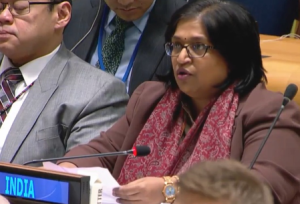Criminals using group messaging on WhatsApp to scam users, caution advised.
Hackers attack large group discussions to prey on people.

It seems that the world of cyber crime is constantly evolving, and fraudsters have once again found a way to exploit a popular platform. WhatsApp, with its impressive 2 billion monthly users, has become the latest target for these criminals. Experts are now warning users to be on the lookout for suspicious messages in group chats.
The national cyber crime centre, Action Fraud, has already received over 600 reports this year of fraudsters posing as group members in chat. This is a cause for concern, as the criminals are using a clever tactic to gain the trust of their victims. They will often disguise themselves with a false profile picture or name, making it harder for users to detect their scams.
But how exactly are these fraudsters using WhatsApp to scam people? Well, it seems that they are targeting big group chats in particular. First, they will make an audio call to a group member, pretending to be someone else in the chat. To appear more legitimate, they may even use a fake profile picture or name. They will then ask the victim for a one-time passcode to join a group video call.
This should be a major red flag for users, as the criminal is actually trying to get the victim's passcode to register their WhatsApp account to a new device. This will give the criminal full access to the victim's account, and they can then enable two-step verification to lock the victim out and target their loved ones. The fraudsters will often send messages to other members of the group or the victim's friends and family, requesting an urgent money transfer.
So, how can you protect yourself from falling victim to this scam? The most effective way is to set up two-step verification on WhatsApp. This can be done by going into your settings, selecting Account, and then enabling two-step verification. It's also important to be cautious of any strange requests you may receive from family or friends on WhatsApp. If something seems suspicious, always call the person outside of the app to confirm their identity.
In addition, you can report spam messages or block the sender within WhatsApp by pressing and holding on the message bubble and following the instructions. If you do become a victim of this type of fraud, it's important to report it to the proper authorities. In England, Wales, and Northern Ireland, this can be done through the Action Fraud website or by calling 0300 123 2040. In Scotland, you can report it to Police Scotland on 101.
As DSI Gary Miles, head of the National Fraud Intelligence Bureau, warns, those in big group chats should be particularly vigilant and monitor who joins the chats. Action Fraud has found that the three most affected group chat types are Islamic religious groups, Christian religious groups, and work chats. However, users of all types of group chats should be cautious.
A spokesperson from WhatsApp has also weighed in on the issue, emphasizing the importance of setting up two-step verification and never sharing your PIN code with anyone, even friends and family. If you receive a suspicious message, the fastest and simplest way to confirm someone's identity is by calling or requesting a voice note from them.
In conclusion, while there is a loophole on WhatsApp that fraudsters are exploiting, there are also steps that users can take to protect themselves. By being cautious and following these tips, we can all play a role in keeping our accounts safe.










